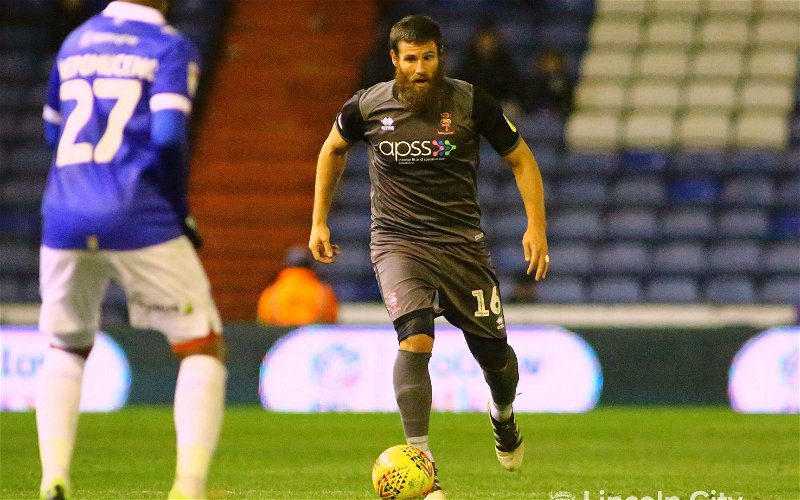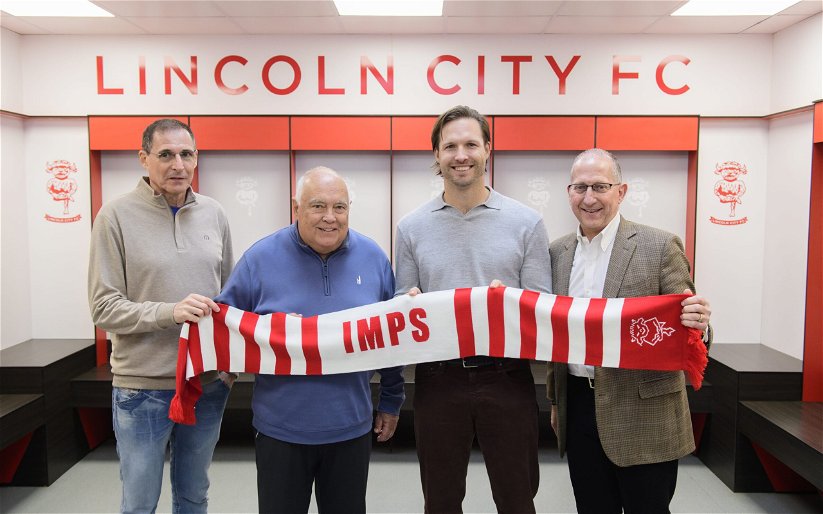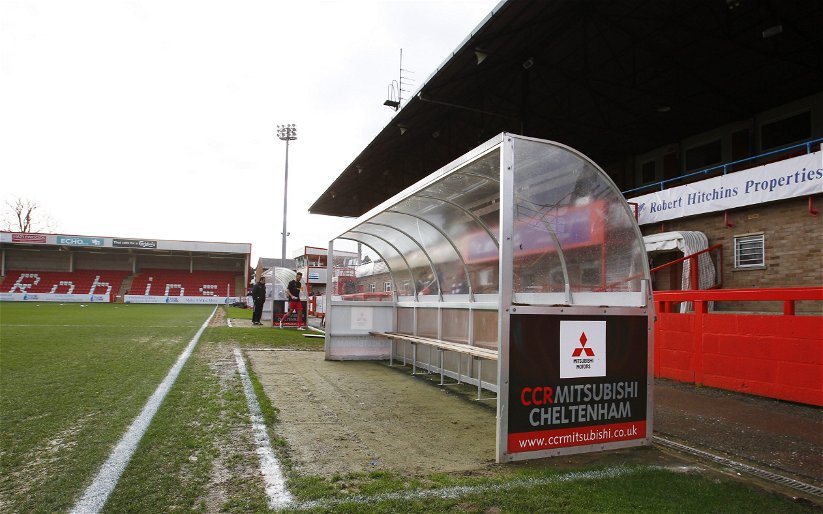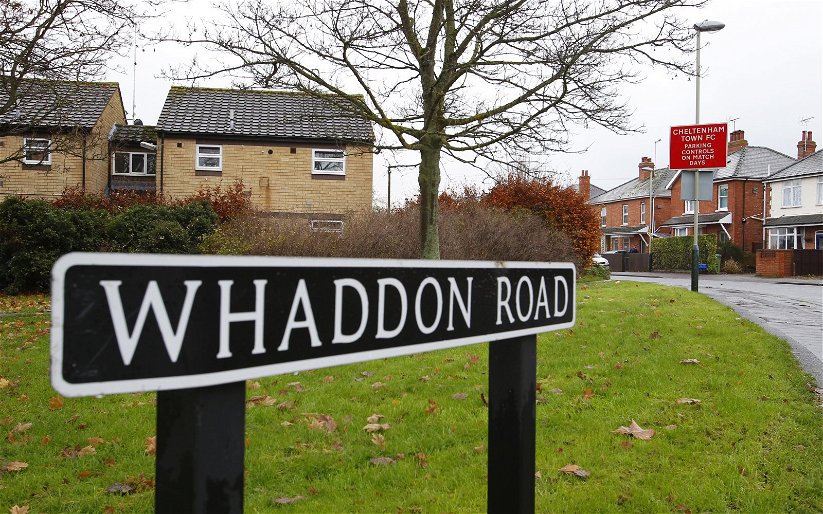“There is a trust there. Both Matty and Craig’s track record speaks for itself. I think we have the right people at the club to keep building, pushing in the right direction.”
That was Hartlepool chairman Raj Singh speaking about manager Matthew Bates prior to the home game against AFC Fylde on 27 November. Three hours later, he sacked him. We can only assume that the trust Mr Singh was referring to was a different kind of trust to the one most people are familiar with.
The dreaded vote of confidence has become almost legendary within the game, but it is probably groundless as a concept. Far more managers have retained their jobs after receiving the support of their chairmen than not, although knee-jerk reaction to defeat can often tempt the less cerebral into acting rashly.
Football management is a notoriously unstable profession of course and often operates with very little logic or objectivity. You do not have to observe the intricacies of football for very long to conclude that the relationship between manager and chairman is often a fraught one. Older supporters may remember the ongoing battle between ‘Fat Stan’ Flashman and Barry ‘Bet Your House On Us’ Fry a third of a century ago. Fry often claims to have lost count of the number of times he was sacked by the infamous ticket tout, and that was despite bringing relative success to a mostly forgotten corner of north London.
“I made Stan Flashman £3m. Stan could be the most generous man in the world one minute, but he was pure evil the next. He would threaten to have you encased in a motorway bridge, things like that.”
Terrific.
Fry estimates that Flashman sacked him eight times, rescinding on seven occasions. The only wonder is why Fry kept agreeing to return. With a growing reputation in the game as a manager, it would not have been too hard to find alternative employment. However, Fry and Flashman is perhaps an extreme example of the love-hate relationship that can exist between chairman and manager.
Many fans believe that managers are given no time to create stability nowadays and that Danny Cowley and Lincoln City is far from the norm. Quite how that relationship would have developed without the stellar success of 2016-17 is a moot point. But quite how true is that? History is littered with clubs that gave managers no time at all to settle, let alone achieve anything. Contrary to popular belief, impatience for success is not a modern phenomenon. At Lincoln, we have seen the like of Con Moulson, George Kerr, John Pickering and Steve Wicks come and go in the blink of an eye. Even Brian Clough was famously given just 44 days at Leeds in the early Seventies, and he claimed to be the best manager England never had.
That claim may have drawn snorts of derision from supporters across the Trent and elsewhere, but even the greatest are not immune from the whims of a rampant and all-powerful chairman. Take Terry Venables, who was appointed manager of Barcelona in 1984 after making his name very competently at Crystal Palace and QPR. Dubbed ‘El Tel’ by an adoring media, Venables immediately led Barça to the title in 1985 and to the European Cup Final the following year, although they lost to Steaua Bucharest on penalties. Whatever the expectations were for 1986-87, Venables failed to achieve them and was sacked in September 1987. The parting shot from club President Josep Lluís Núñez (who died on 3 December this year) was particularly memorable:
“In just one year, Terry Venables has gone from being the best coach in Spain to the worst.”
Thanks very much for winning us the title and reaching the European Cup Final, then. Ironically, Núñez received a six-year prison sentence for fraud in 2014, presumably unconnected with his decision to sack Venables. Perhaps the same megalomania with which he ran Barcelona spilled over into his business ventures.
We may have laughed at such charmless lunacy in this country, but we had our fair share of trigger-happy chairmen in those days too. Take ‘Deadly’ Doug Ellis, for example, who developed a serious manager habit at Aston Villa throughout his thirty-one years at the helm. Ellis worked his way through thirteen of them during that time, the majority during his second spell as chairman, and only two of them managed to win a trophy for him. The First Division championship in 1981 and European Cup win in 1982 ironically came during the period between his two spells in charge. That must have rankled with him and may explain why he was so desperate for success on his return in 1982. Three managers followed in quick succession in a frenzied attempt at maintaining a place at Europe’s top table. The result of all that activity? Villa were relegated from the First Division just five years after becoming European champions.
And now football has a new contender for dearly-departed Deadly Doug’s crown in the shape of Alan Hardy, the Twitter-obsessed owner of our near neighbours Notts County. Hardy has been accused of having a penchant for big-name managers – and also of having a bent towards Liverpool – and his record so far would suggest some truth in that.
His first big appointment came the day after he became chairman in January 2017 in the form of Liverpudlian Premier League star Kevin Nolan. Rookie manager Nolan did a sound job in keeping County in the League and took them all the way to the playoffs the following season with an ageing team. However, he got off to a disappointing start this season and was sacked after just five games. Was it a knee-jerk or a considered decision? Did Hardy have something better lined up?
No, he had former Liverpool and Australia international Harry Kewell lined up, and this really did create a strange sequence of events. Apparently, Kewell was head and shoulders above all other candidates, so much so that Hardy said he would have preferred to give Kewell a five-year contract rather than the three-year one agreed. On 31 August he called Kewell the long-term solution for Notts County. Seven weeks later on 19 October, Hardy praised Kewell publicly for his creativity and impressive team selections.
A little over three weeks later, he sacked him.
At that point, Hardy informed the media that he had initially had reservations about Kewell just two weeks into his tenure. So he was obviously not that impressed by Kewell’s creativity and team selections, then. Whatever the truth, long-term solution Kewell had lasted just 73 days.
If the latest County manager Neal Ardley has any common sense, he will be dreading any positive comments at all from his new chairman. Incidentally, rumours that Hardy actually intended to appoint Neal Eardley as his new manager but got Neal Ardley by mistake are currently unfounded.
Clubs sack their managers for a host of reasons of course, although the majority will be performance-related. However, managers are not always sacked because their clubs are struggling. Knee-jerk reactions, when faced with relegation, are common, but clubs can also panic when a promotion dream begins to fade. We need to look no further than Sincil Bank for calamitous evidence of that. Lincoln sacked the experienced George Kerr in March 1987 as the side slipped out of contention at the top of the Fourth Division. In its infinite wisdom, the Lincoln board appointed a thirty-two-year-old midfielder with no experience of management in his place. Two wins, five draws and eight defeats later, Lincoln were heading to Barnet and beyond. What did they really expect?
Lincoln are far from unique in conjuring catastrophic cock-ups from thin air, of course. Newcastle United have honed a legendary ability to machine-gun themselves in both feet over the years, and examples abound. Two of those decisions relate to the likeable – and now very successful – Chris Hughton, who delivered two solid spells as caretaker manager without being given the job on a permanent basis. After bringing some stability to the club after the departure of Joe Kinnear in 2008-09, he lost out to club legend Alan Shearer. Newcastle had been desperate to bring Shearer back to St James’ Park for some time, seeing him as the man to inspire the club to new heights. At the end of the season, they were relegated from the Premier League after Shearer returned the worst managerial statistics in the club’s entire history. So much for club legends.
All of this leads us to conclude that clubs should be careful what they wish for, but it is a fair bet none of them will.
It must also be pointed out that trust is a two-way street. Football history is also littered with managers swearing undying allegiance to their club, only to depart for a better (-paid) job a short time later. Take ‘Big’ Ron Atkinson at Sheffield Wednesday, for example. On 31 May 1991, Atkinson announced he was leaving the club, claiming the travelling from his home in Birmingham had become a problem. Having wheeled out a group of vaguely oafish supporters to chant his name for the benefit of the massed media, Wednesday persuaded Atkinson to change his mind. A suitably emotional Atkinson wondered aloud why anyone would want to leave such a great club – and especially such great supporters – and returned to his job.
Exactly a week later, he resigned.
The irony? He went to work for Doug Ellis at Aston Villa.
Further irony? Having led Villa to second place in the inaugural Premier League in 1992-93 and to the League Cup in 1993-94, Ellis sacked him – three days after giving him a vote of confidence.
Even England manager Don Revie jumped ship in 1977 in exchange for pots of Arabian gold, although most of us would have been more than happy to drive the boring git to the airport in person.
Therefore, we must conclude that the manager cannot trust his chairman, who is probably having lunch with his imminent replacement right now; and the chairman cannot trust his manager, who is probably on the phone to his future employer while the chairman is out to lunch. Both parties will speak of unswerving loyalty to each other and a bond of trust that is unbreakable, while at the same time making sure their phones are on silent. Welcome to the world of football management.
To end with, here’s a little story from Barry Fry about his far-from-slim late chairman Mr Flashman.
“One day he told me, ‘Sinatra’s coming over’. I asked him how much tickets were, and he said £1,500 a pair. I said there was no way I could afford them. But on the day of the concert, he phoned me and said he had a pair of tickets waiting for me. My wife and I shot down the motorway and the show was fantastic. That Friday, I went round to Stan’s house, as usual, to pick up the wages and he said, There aren’t any wages for the next three weeks, you still owe me £1,500 for them Sinatra tickets.'”
Finally, I must assure you that rumours linking me with another Vital Football site are entirely unfounded. I am fully committed to my role with Vital Lincoln City (kisses badge).
Trust me.
Who did our members consider to be November’s star players?
According to the hard statistics, Player of the Month is Matt Green. However, that is based on the rating for just the one game when he scored twice against the Wolf Cubs. An honourable mention for Greeny, though.
The real Player of the Month is MICHAEL BOSTWICK, and by a fair margin. Whether in midfield or defence, the Bostwick product is always the same: total commitment and fearsome to play against.
Second place goes to Bostwick’s defensive partner in crime JASON SHACKELL, who continues to defy the passing years with great energy and a degree of experience rarely seen at this level.
Third place goes to JOHN AKINDE, who continues to defy the morons who choose to ignore the excellent contribution the big man makes to the overall team effort. To reiterate, City have scored 46 goals in their 25 games to the end of November, compared with 32 in the same number last season. If that is not a drastic improvement, I have no idea what is.
A special mention this month for Kellan Gordon, whose contribution from the bench has been excellent. His winner against Forest Green will always assure him of a warm reception in these parts, and a place in the starting line-up must surely be in the offing for the Derby starlet.
The average team score of 6.55 is marginally down on October (6.61).
(1. Matt Green 7.50)
2. Michael Bostwick 7.42
3. Jason Shackell 7.19
—————————————————-
4. John Akinde 7.11
5. Neal Eardley 7.10
6. Bruno Andrade 6.73
7. Shay McCartan 6.67
8. Tom Pett 6.65
9. Harry Toffolo 6.64
10. Kellan Gordon 6.57
11. Matt Rhead 6.25
12. Harry Anderson 6.23
13. Josh Vickers 6.11
14. Michael O’Connor 6.09
15. Scott Wharton, Lee Frecklington 5.80
17. James Wilson 5.71
18. Ellis Chapman 5.60
19. Adam Crookes 5.50
20. Sam Slocombe 5.00
21. Bernard Mensah 4.40
Individual ratings by match:
Forest Green: Michael Bostwick 8.45
Wolves U21: Matt Green 7.50
Northampton: Bruno Andrade 7.85
Mansfield: Michael Bostwick 7.42
Oldham: Neal Eardley 7.06
So where does that leave us regarding the current player of the season standings?
1. Tom Pett 7.03
2. Jason Shackell 6.94
3. Michael Bostwick 6.90
Home Player of the Season:
1. Tom Pett 7.08
2. Jason Shackell 7.07
3. Bruno Andrade 7.05
Away Player of the Season:
1. Scott Wharton 7.25
2. Tom Pett 6.95
3. Michael Bostwick 6.84
Player of the Month:
August: Josh Vickers 7.33
September: Jason Shackell 7.47
October: Tom Pett 7.07
November: Michael Bostwick 7.42
Acknowledgement is given to the endlessly amusing Big Fry by Barry Fry for some of the references in this article. Not the one about Don Revie, I should add.
Writer: Scotimp
Why Trust Is Not To Be Trusted:https://t.co/QbaRjDlr4E#ImpsAsOne
— Vital Lincoln City (@VitalLincoln) December 15, 2018
https://www.facebook.com/VitalLincolnCity/posts/1974456799257222



